Is there anything tastier than a sun-warmed tomato you can eat fresh off the vine while standing in the garden? One of the biggest perks of organic gardening is that you know what is—and isn't—in your food. Plus, growing vegetables, herbs, and flowers organically means your garden becomes a wonderful haven for birds, bees, and butterflies. Growing an organic garden is easier than you might think. Just follow the tips we've put together in this "organic gardening for beginners" guide and you'll soon be on your way to a delicious harvest.
1. Select Your Site
Choose a location that receives at least 6 to 8 hours of sunlight each day. Most fruiting plants, like tomatoes, peppers, cucumbers, and melons, need full sun to produce well. However, don't despair if your garden is a bit shady. Leafy greens like lettuce, kale, and many herbs can tolerate partial sun (think 3 hours per day or more). Stay away from large trees and roots (which can steal nutrients and water from your vegetables). Be sure you have easy access to a water source, too.
If you don't have a large yard, no worries—container gardening to the rescue! If you're growing in pots, place them in protected areas in case of strong wind so they won't topple over. Consider putting your organic container garden somewhere that's convenient to the kitchen, too. An herb garden right outside the kitchen door, for example, makes dinner prep a breeze. Just make sure you use the right size pot for whatever you're planting in your organic garden.
2. Use Great Soil
Excellent soil filled with nutrients is one major key to a successful organic garden. Rich, well-draining soil encourages your plants to produce strong root systems. If this is your first time organic gardening, start a compost pile now to help enrich the soil—but remember, it takes a while for compost to break down to use in your garden. In the meantime, create ideal soil by mixing 3 inches of Miracle-Gro® Performance Organics® All Purpose In-Ground Soil, which is enriched with aged compost, in with the top 6 inches of existing garden soil to give your plants a great start.
For a container garden, use potting mix designed for containers. It's lighter and drains better than garden soil, allowing water and nutrients to easily reach the plant's roots. Miracle-Gro® Performance Organics® All Purpose Container Mix does just that, plus it contains lots of organic matter in the form of aged compost. Make sure your pots have drainage holes, too, because few vegetables or herbs like having "wet feet."
If you're growing in a raised bed, fill it with Miracle-Gro® Performance Organics® Raised Bed Mix or a 50-50 blend of In-Ground Soil and Container Mix for best results.
3. Pick the Perfect Plants
Selecting plants native to your region or bred specifically for your climate helps create a healthy, low maintenance organic garden, which is especially important if you're new to organic gardening. All of the Bonnie Organics varieties you'll find at your local garden shop or home improvement store have been chosen because they grow well in your area. (They're also certified as USDA Organic.) For example, you may see short-season tomatoes perfect for colder northern climates, or tomatoes that withstand high temperatures and humidity for southern regions. Don't dismiss disease-resistant hybrid plants, either, as they can also create less work and greater harvests in the garden. Plus, plant a variety of flowers and flowering herbs to attract pollinators and other beneficial insects that will help keep pests away and your plants happy. (Find out where to buy Bonnie Organics in your area.)
4. Water Wisely
Too much water can be just as bad for your plants as not enough, so always check the soil before watering. Stick your finger one inch down into the soil. If the soil feels moist, leave it alone, but if it's dry, it's time to water. Be sure to water the soil surrounding the base of the plants so the roots absorb the moisture. Not only is watering the leaves wasteful, but it can also create an environment that invites disease. Drip irrigation, a highly targeted watering method, is a good choice for organic gardens.
5. Feed Your Plants
Throughout the growing season, give your plants regular boosts of energy with Miracle-Gro® Performance Organics® Edibles Plant Nutrition. Plants need extra nutrients to produce bountiful harvests, particularly big, hungry plants like tomatoes and peppers. Make sure to read the directions on the package so you'll add just the right amount of plant food.
6. Maintain With Mulch
A thick layer of organic mulch not only helps control weeds by blocking the sun they need to grow, but also helps retain moisture in the soil so you may need to water less. Mulch also creates the look of a a tidy, pretty garden. While pine straw and wheat straw are popular mulch choices, untreated grass clippings, chopped leaves, and even aged wood shavings are also good options. Mulch eventually breaks down and adds nutrients to the soil, too—and you know your plants will love that!
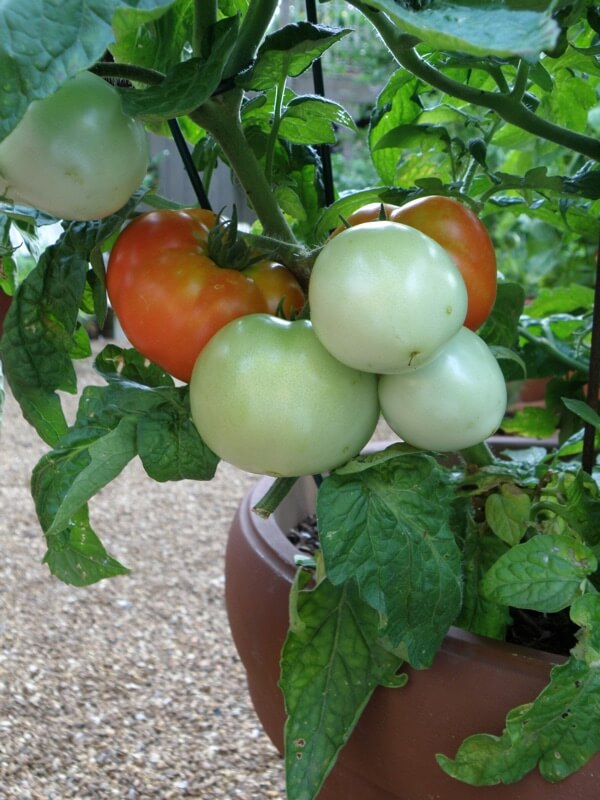


7. Rotate Crops
One of the best ways to protect your organic garden is to use a time-tested method called "crop rotation," which simply means moving plant types to different locations each year. Here's why it's important: When members of the same crop family (such as tomatoes, peppers, and eggplants, all members of the nightshade family) are always planted in the same place year after year, pests and diseases that attack that particular kind of plant can build up and overwinter in the soil. Then they're ready to attack the next time that plant is planted. By mixing up your garden plan and moving plants to different beds or areas in the garden, you'll avoid pests and diseases that may lurk in the soil.
8. Clean Up Debris
Good hygiene is just as important for the garden as it is for the gardener. Remove diseased leaves and plants (don't add them to the compost pile), regularly check leaves and stems for pests, and dispose of garden litter (think overripe fruit, broken branches, fallen leaves). Make sure to clean tools often, wiping with disinfecting cloths if you've used them on plants that might be diseased.
9. Enjoy Your Harvest!
Now comes the fun part. If you're uncertain when to harvest your crops, check out our Harvest Guide for Summer Vegetables, Harvest Guide for Cool Weather Vegetables, and Summer Herb Harvesting Tips. Eating—and sharing—your delicious, garden-fresh meals will make you happy that you became an organic gardener.

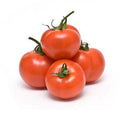

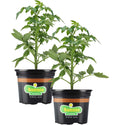
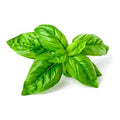 Herbs
Herbs
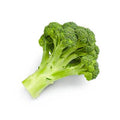 Vegetables
Vegetables
 Fruit
Fruit
 Flowers
Flowers
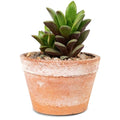 Succulents
Succulents


